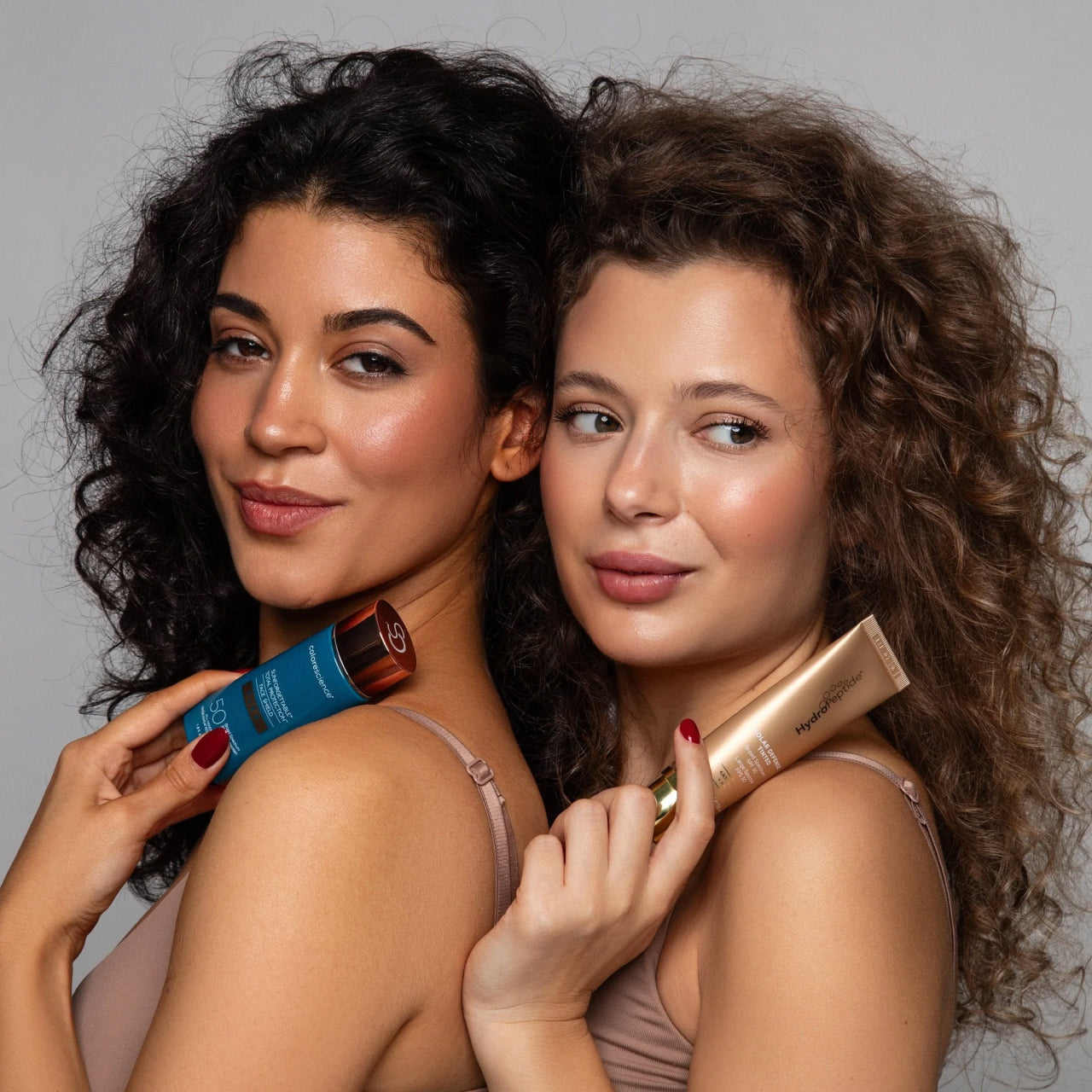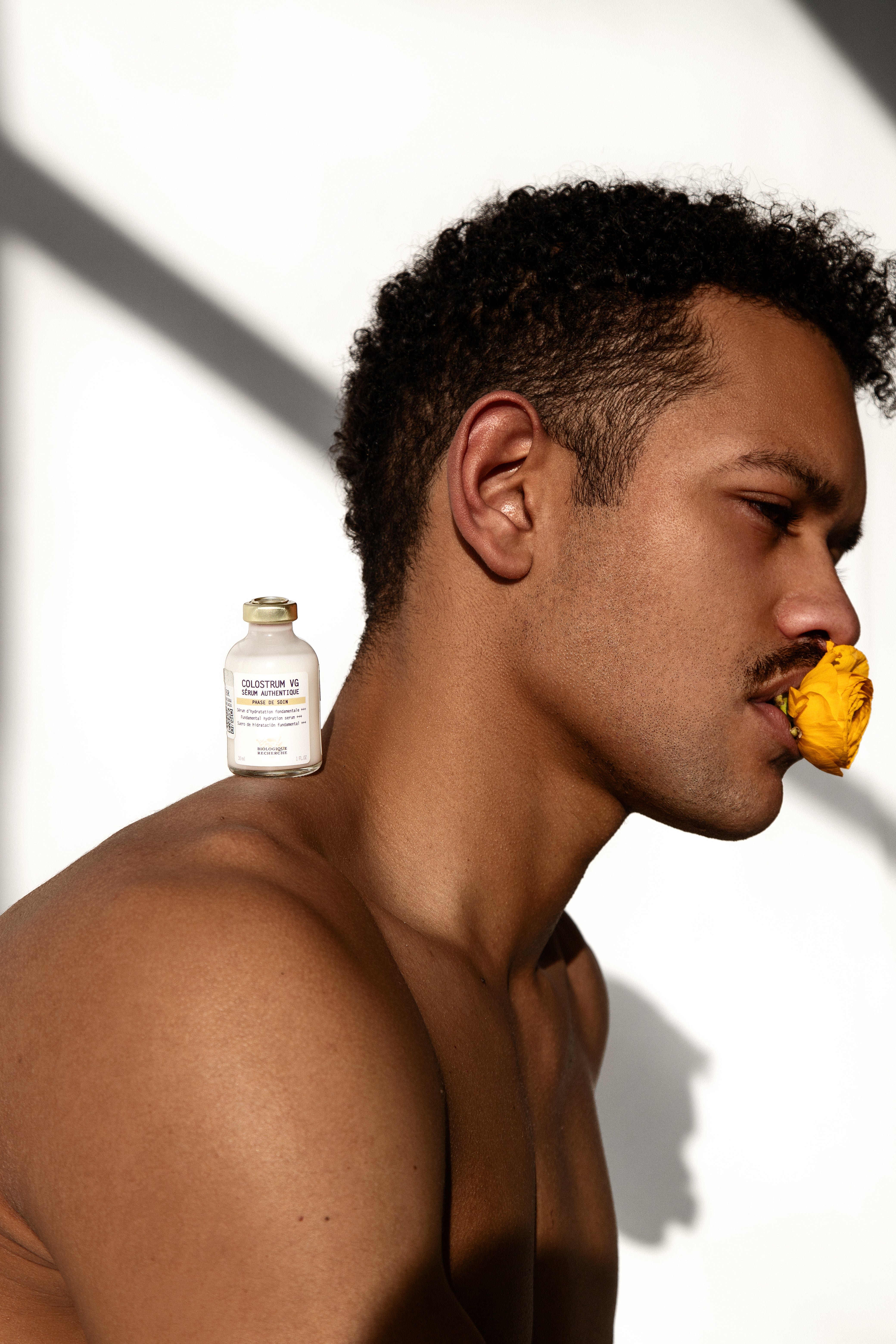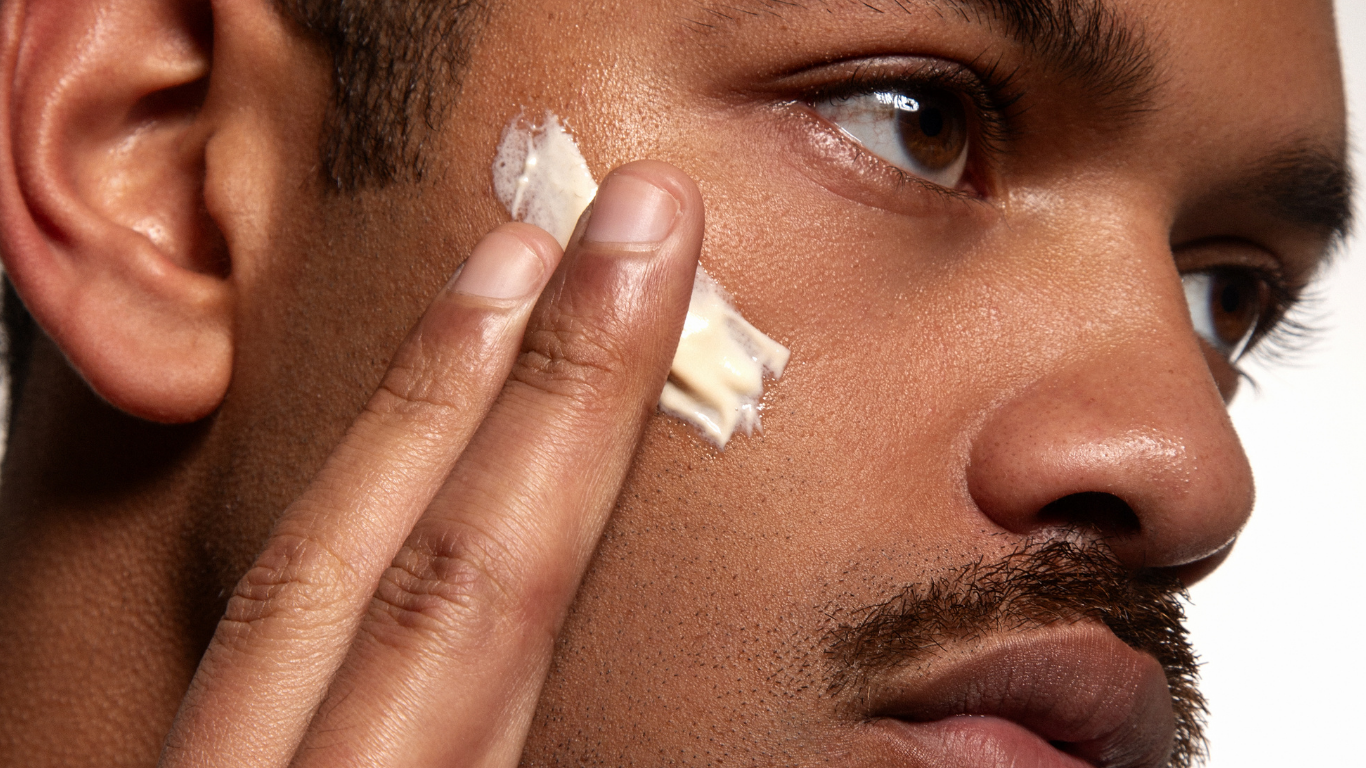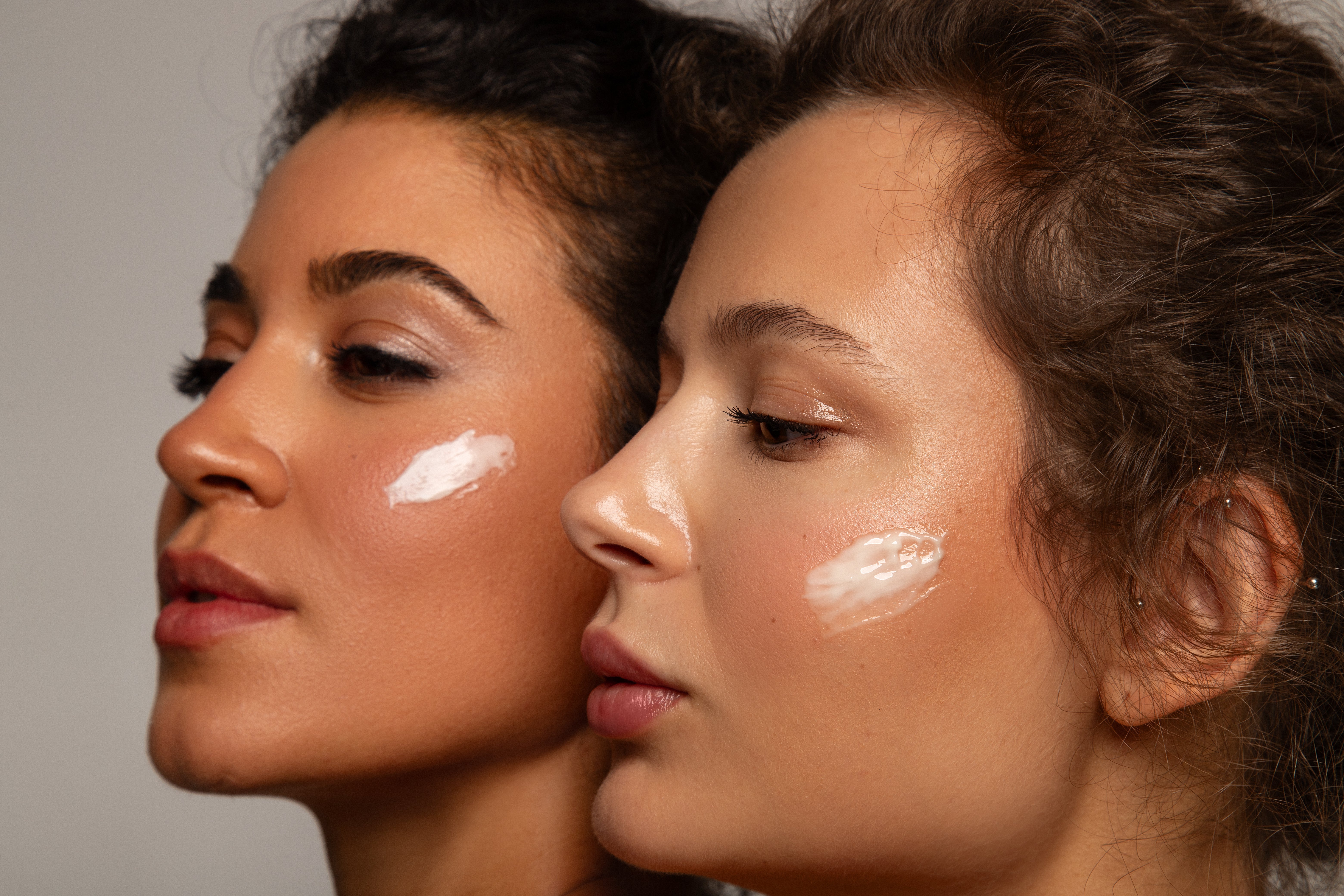Whether you're enjoying Mediterranean sunshine or navigating Northern Europe's cloudy days, one skincare truth remains universal: daily sun protection is essential. At Baza Cosmetics, we understand that UV protection needs vary across different climates, which is why we're sharing expert guidance to help protect your skin, wherever you are.
The Science Behind Sun Damage
Sunlight delivers two types of harmful UV radiation that affect your skin every day:
-
UVB rays cause sunburn and surface damage, varying seasonally and by location
-
UVA rays penetrate deeper, accelerating aging, and remain strong year-round—even on cloudy days and through window glass
According to the American Academy of Dermatology (AAD) and the U.S. National Cancer Institute, UV radiation is a major risk factor for skin cancer. Research consistently shows that up to 80% of visible aging signs (wrinkles, hyperpigmentation, loss of elasticity) result from cumulative UV exposure rather than natural aging.
Important climate considerations:
-
Mediterranean regions: Intense year-round sun accelerates skin aging
-
Northern Europe: Deceptive cloud cover still allows significant UV exposure
-
Mountain regions: UV intensity increases 10% with every 1,000 meters of altitude
Consequences of Inconsistent Protection
Inadequate sun protection leads to:
-
Premature wrinkles and uneven texture
-
Persistent hyperpigmentation and sunspots
-
Increased skin cancer risk
-
Worsening of conditions like rosacea and acne
A compelling medical case study documented a delivery driver whose face aged dramatically on only one side—the side exposed to sunlight through his vehicle window over decades, demonstrating how daily, incidental exposure affects skin health. His photo was published in the New England Journal of Medicine and BBC.
Our Top SPF Recommendations
1. iS Clinical Eclipse SPF 50+
Light, non-comedogenic protection for all skin types, including sensitive, acne-prone, and rosacea
Ideal for: Daily use across all climate zones
2. ZO Skin Health Broad-Spectrum SPF 50
Mattifying formula that prevents hyperpigmentation while managing oil production.
Ideal for: Combination to oily skin types and warmer climates
3. Colorescience Sunforgettable Brush-On SPF 50
Innovative mineral powder sunscreen for quick reapplication over makeup throughout the day.
Ideal for: On-the-go touch-ups and travel between different climates
4. Hydropeptide Solar Defense Tinted SPF 30
Moisturizing protection with a light tint that adapts to skin tone and anti-aging ingredients.
Ideal for: Dry or mature skin and cooler climates
5. Medik8 Advanced Day Total Protect SPF 30
Lightweight cream with antioxidants to combat environmental damage in urban settings.
Ideal for: All skin types needing comprehensive protection
Sunscreen Types: Making the Right Choice
Physical (Mineral) Sunscreens
-
Contains: Zinc oxide, titanium dioxide
-
Best for: Sensitive skin, children, rosacea
-
Pros: Immediate protection, minimal irritation
-
Cons: May leave a subtle white cast
Chemical Sunscreens
-
Contains: Avobenzone, octinoxate, octocrylene
-
Best for: Everyday use, under makeup
-
Pros: Lightweight, transparent finish
-
Cons: Requires application 15-20 minutes before sun exposure
Choosing SPF for Your Climate
Mediterranean & Sunny Regions
-
Higher SPF (50+) with robust UVA protection
-
Oil-controlling formulations in summer
-
Water-resistant options for active lifestyles
-
Reapplication every 2 hours during peak sun
Northern & Cloudy Regions
-
Focus on consistent UVA protection year-round
-
Hydrating formulations during winter months
-
Antioxidant-rich formulas to combat urban pollution
Coastal & High-Altitude Areas
-
Water-resistant, high SPF (50+) formulations
-
More frequent reapplication (every 1-2 hours)
-
Additional protection for often-overlooked areas
Common Sunscreen Myths Debunked
-
"I don't need sunscreen on cloudy days" Reality: Up to 80% of UV rays penetrate cloud cover
-
"Winter protection isn't necessary" Reality: UVA rays remain strong year-round and penetrate glass
-
"Darker skin doesn't need sunscreen" Reality: All skin tones remain vulnerable to UVA damage and hyperpigmentation
-
"My foundation with SPF is enough" Reality: Most people apply insufficient foundation to achieve adequate protection
Quick SPF FAQ
1. Do I need SPF in winter or when it’s cloudy?
Yes! UVA rays penetrate clouds and glass. Protection is needed year-round.
2. Is SPF in foundation or powder enough?
No. Foundation with SPF is only additional protection. You still need a dedicated sunscreen.
3. How often should I reapply SPF?
Every 2–3 hours outdoors; after swimming or sweating. In the city, 1–2 times a day is enough.
4. What’s best for sensitive skin or rosacea?
Mineral sunscreens (zinc oxide, titanium dioxide) — they’re gentle and non-irritating.
5. Can I use SPF if I have acne?
Absolutely! Look for lightweight, non-comedogenic formulas.
6. What’s the minimum SPF I should use daily?
SPF 30 for daily urban life, SPF 50 for intense sun exposure. Also check PA+++, PA++++ for high UVA protection.
7. How much SPF should I apply?
Face + neck ≈ 1/2 teaspoon; apply 15–20 minutes before sun exposure; don’t forget ears, chest, hands.
Final Thoughts
Sun protection transcends seasons and borders. Whether you're experiencing Mediterranean sunshine or Nordic winters, daily SPF application remains the single most effective anti-aging and skin cancer prevention strategy available.
At Baza Cosmetics, we're committed to helping customers find their perfect sun protection match, no matter where they're located. Our carefully curated selection ensures everyone can find effective, elegant formulations suited to their specific skin needs and local climate conditions.
Looking for personalized sunscreen recommendations? Our skincare specialists at Baza Cosmetics understand the nuanced protection needs across different climates and skin types. Contact us for expert guidance tailored to your unique requirements.



